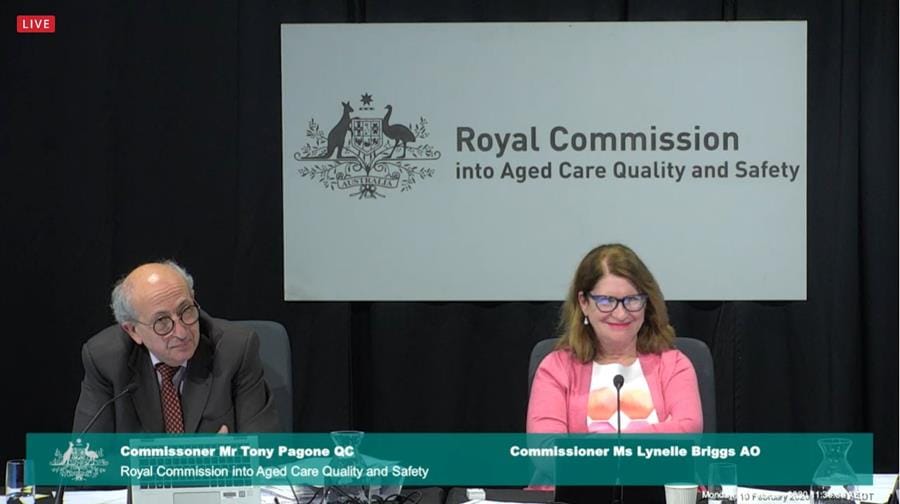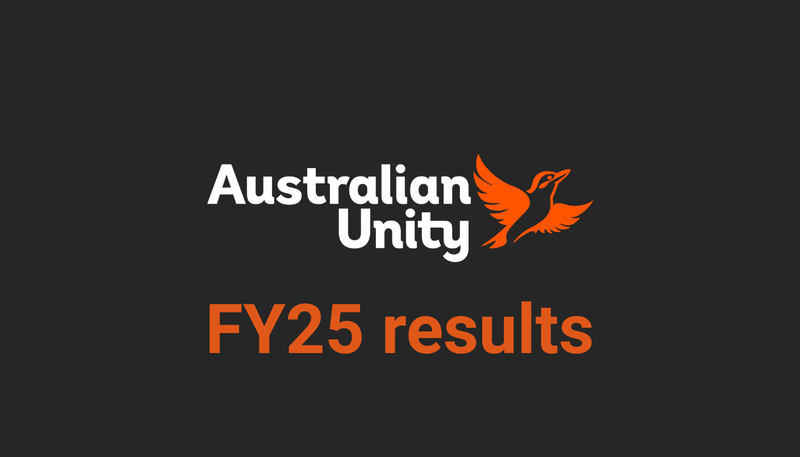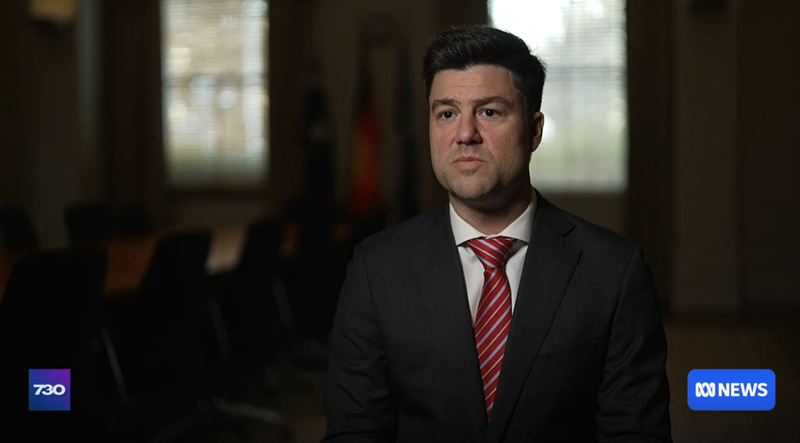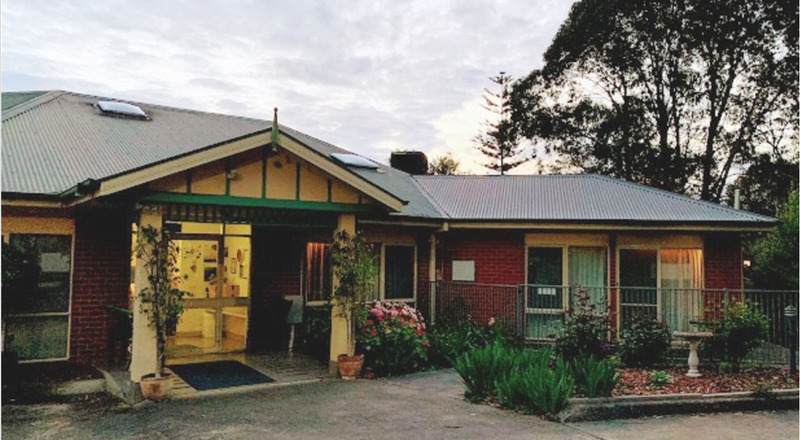Witnesses back plans for voucher-style system and means testing for ‘Entry Level Support’ – Commissioner Briggs hints at aged care ‘levy’ to pay for services
Commissioner Lynelle Briggs has labelled the current income testing arrangements for aged care “a complete dog’s breakfast” and suggested a levy could be a solution to enable more effective means testing of services during a panel discussion...

Commissioner Lynelle Briggs has labelled the current income testing arrangements for aged care “a complete dog’s breakfast” and suggested a levy could be a solution to enable more effective means testing of services during a panel discussion on the lower-level support services currently provided under the Commonwealth Home Support Programme (CHSP) and Home Care Packages (HCP) Program.
For just over 80 minutes, Senior Counsel Assisting Peter Gray QC (who acknowledged many submissions called for ‘entry level support’ to be renamed ‘basic services’) had quizzed the panel on how basic services could be provided to older people that would keep them living independently for longer – without making them dependent and also supporting wellness and reablement.
Particularly, he raised the idea of a voucher-style system with the seven witnesses:
- Graham Aitken – CEO of Aboriginal Community Services
- Dr David Panter – CEO at ECH, and LASA Board member
- Professor Michael Fine – Macquarie University
- Paul Sadler – CEO of Presbyterian Aged Care
- Jane Mussared – CEO of COTA SA
- Professor John McCallum – CEO of National Seniors Australia
- Dr Nicholas Hartland PSM – First Assistant Secretary of In Home Aged Care in the Department of Health
Professor Fine agreed a voucher could work, but said services would benefit from more flexible funding so people could change their supports as they became more independent.
However, Ms Mussared said COTA believed reablement should fall into the ‘care stream’ put forward in the Consultation Paper.
“A person may well get suckered into a long-term domestic assistance arrangement that’s not meeting need at all or, indeed, you know, denying an opportunity perhaps to try other things or do other things,” she said.
The panel also agreed a low-level assessment option with follow-up to ensure the services were effective was preferable – apart from Dr Hartland who maintained his stance that a single assessment service was the only option.
“We would still not have two separate gateways,” he stated.
The First Assistant Secretary also couldn’t get behind the idea of a voucher-style system – because of the Department’s lack of data about the demand for home care services.
“You might give vouchers for nine services but that would be a lot more service than what you’re currently encompassing,” Dr Hartland argued. “So, I think you would need a reformed system before you started going down that track in the way that you’re proposing in your paper.”
Dr Hartland added the only data they currently have on home care arrangements is the number of people queued for one to four levels of packages – and there would need to be a RUCS-style similar to the one in residential care (he later revealed the Department is currently undertaking this research with the first stage due in April).
The Senior Counsel also asked the witnesses about whether basic level services should be means tested – and the panel agreed they should, provided the co-payment was kept modest.
“I think for this sort of entry level simply testing on your aged pension your Commonwealth health care card something else that's very simple will be by far the easiest approach,” Mr Sadler said. “When you get more complex care, which will come out in the care stream, then I think you’re looking then at an independent means test, similar to what we have got now, though hopefully more friendly.”
Commissioner Lynelle Briggs had a different opinion however – and again it’s one the Government may want to take note of.
“I find these comments interesting because I’ve also read the general view and submissions that says people should be paying more if they have got the means to do so,” she said. “There’s an argument on the health side that if you need particular health care that should be available universally and it seems to stop when we get to aged care because it’s seen as a social service which must be tightly restricted. I’m wondering if we go back to Commissioner Pagone’s comment around a form of insurance or whatever, whether that argument still stands, because with a form of insurance, say a disability levy or a Medicare levy, I contribute more according to your income and so you if an income tested purpose up front and then for example when you access your superannuation, bob’s your uncle, you don’t go through those complicated processes.
I’ve looked quite a lot at the current income testing arrangements and they seem to me to be a complete dog’s breakfast. So whichever way it goes, you wouldn’t want to keep what you’ve got but have you thought about these broader issues that might enable some, in effect, means testing through the system overall, in other words the revenue collection system, rather than in terms of the provision of care which would make the care provision system simpler?”
Dr Fine said the question was certainly worth the conversation, noting that in his research people using CHSP were happy to pay what they could afford because it gave them a sense of ownership of their services.
Seems like a far-out idea from the Commissioner – but let’s not forget her previous life as the CEO of Medicare, where she was responsible for creating Lifetime Health Cover (LHC).
That initiative was designed to encourage Australians to buy private patient hospital cover earlier in life – is a levy for aged care so different?





